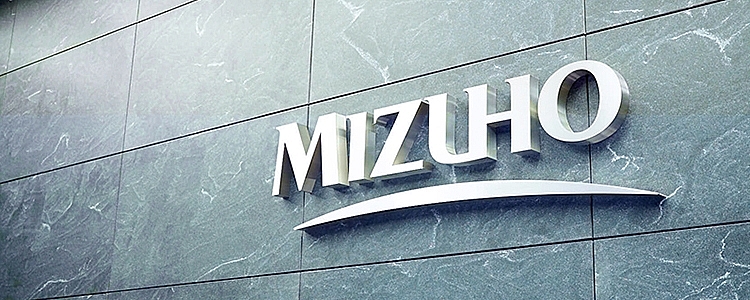Japanese bank Mizuho to stop lending to coal power plants
Mizuho – one of the three so-called megabanks of Japan – plans to reduce its outstanding balance of JPY300 billion ($2.8 billion) in loans to coal power plants by half by the 2030 fiscal year and reduce it to zero by 2050. The bank will go to great lengths to de-carbonate as coal power plants emit massive amounts of CO2 – a major contributor to global warming, according to Asahi.
Newswire Reuters also cited the shareholder resolution sent to the Mizuho management last month requiring the bank to align with the Paris Agreement.
 |
| Mizuho Bank will categorically refuse lending to coal power plants to promote sustainable development |
It was the first time a publicly-traded Japanese company has been sent a shareholder resolution on climate change. The resolution was sponsored by Kiko Network, a Japanese activist group that focuses on coal and also holds shares in Mizuho.
“Climate change is one of the most important global issues that can affect financial market stability,” Mizuho said in its recent statement. “Responding to the environment and climate change is a key issue in our business strategy.”
The revised guidelines are likely to take effect in June. Accordingly, Mizuho will not allow its borrowers to refinance their loans for these projects.
Experts warn that Japanese banks are among the few major lenders who have stuck to providing loans to coal projects, while other lenders such as JP Morgan have cut lending to the sector.
Data from Refinitiv SDC Platinum reveals that Mizuho is among the three largest lenders in the world pouring investment in coal power and mining over the last five years.
Japan’s two other biggest banks – Sumitomo Mitsui Financial Group and Mitsubishi UFJ Financial Group – are also in the top five.
However, Mitsubishi UFJ Financial Group Inc. confirmed last year that it would halt new investments and debts to coal power plants, in principle. Sumitomo Mitsui Financial Group Inc. is also slated to follow suit with a similar financing policy, Asahi reported.
A source at Sumitomo Mitsui told Reuters its banking unit would change its financing guidance to one of not lending to coal-fired power plants in principle.
Recently, Mizuho Financial Group has expressed interest in investing in medical startups through investment funds but has been facing difficulties in stepping up investment in the field. This stems from the significant amount of time and cost required to win pharmaceuticals' approval.
The group has thus decided to establish a fund focusing on life sciences with high growth potential.
Last year, Singapore’s sovereign wealth fund GIC Private Limited has invested in Vietnamese lender Vietcombank through a joint deal with Mizuho Bank worth VND6.2 trillion ($269.57 million) demonstrating the strong interest in Vietnam’s financial sector.
What the stars mean:
★ Poor ★ ★ Promising ★★★ Good ★★★★ Very good ★★★★★ Exceptional
Related Contents
Latest News
More News
- Banking sector targets double-digit growth (February 23, 2026 | 09:00)
- Private capital funds as cornerstone of IFC plans (February 20, 2026 | 14:38)
- Priorities for building credibility and momentum within Vietnamese IFCs (February 20, 2026 | 14:29)
- How Hong Kong can bridge critical financial centre gaps (February 20, 2026 | 14:22)
- All global experiences useful for Vietnam’s international financial hub (February 20, 2026 | 14:16)
- Raised ties reaffirm strategic trust (February 20, 2026 | 14:06)
- Sustained growth can translate into income gains (February 19, 2026 | 18:55)
- The vision to maintain a stable monetary policy (February 19, 2026 | 08:50)
- Banking sector faces data governance hurdles in AI transition (February 19, 2026 | 08:00)
- AI leading to shift in banking roles (February 18, 2026 | 19:54)

 Tag:
Tag:


























 Mobile Version
Mobile Version